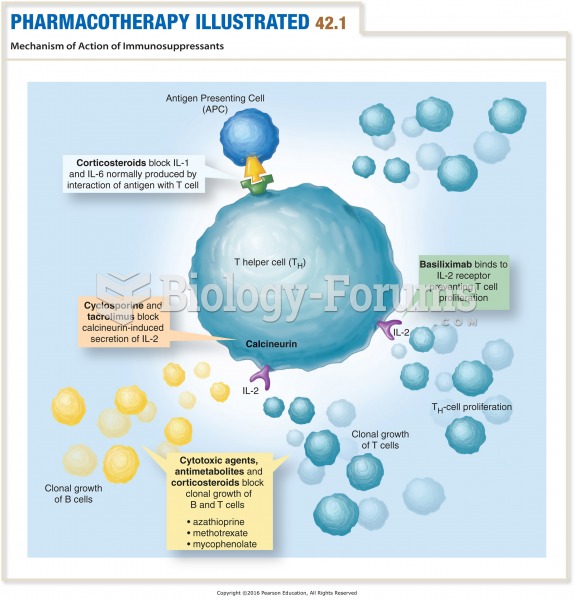|
|
|
The most dangerous mercury compound, dimethyl mercury, is so toxic that even a few microliters spilled on the skin can cause death. Mercury has been shown to accumulate in higher amounts in the following types of fish than other types: swordfish, shark, mackerel, tilefish, crab, and tuna.
The people with the highest levels of LDL are Mexican American males and non-Hispanic black females.
Symptoms of kidney problems include a loss of appetite, back pain (which may be sudden and intense), chills, abdominal pain, fluid retention, nausea, the urge to urinate, vomiting, and fever.
The most common treatment options for addiction include psychotherapy, support groups, and individual counseling.
More than 34,000 trademarked medication names and more than 10,000 generic medication names are in use in the United States.







